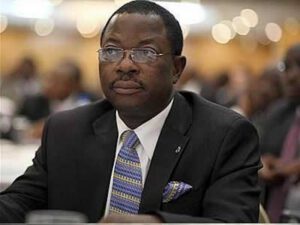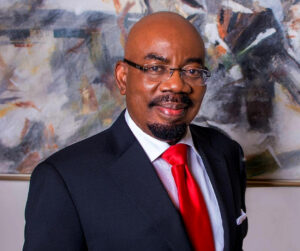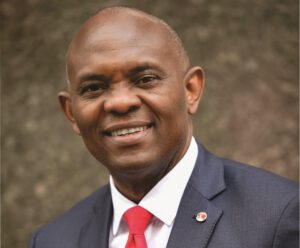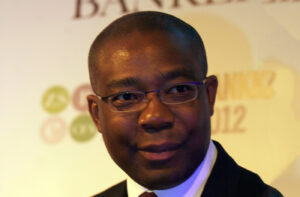By Ade Jacobs
One of the unforgettable quotes in Mario Puzo’s iconic mafia novel, The Godfather, reads: “Never let anyone know what you’re thinking”. That mafia philosophy appears to be ceaselessly unfolding in the top echelons of the Nigerian banking industry.
Ten years ago, the trio of Jim Ovia, Tony Elumelu and Aigboje Aig-Imoukhuede, among other managing directors (MDs) of banks in Nigeria, were forced to relinquish their positions through a Central Bank of Nigeria policy which required bank MDs that had stayed on that position for a period of 10 years to give way for a new management. That policy was one of the highlights of the banking reforms introduced by the then governor of the Central Bank of Nigeria (CBN), Lamido Sanusi Lamido.
While Ovia was the MD of Zenith Bank PLC, Elumelu and Imoukhuede held sway at the United Bank for Africa (UBA) and Access Bank, respectively.
Change of guards
That policy apparently shook the banking sector to its foundation, as a result of the myriad sordid revelations of official malfeasance in the sector and corruption allegations against previously ‘untouchable powerful interests’ that it undressed in the public arena.

Cecilia Ibru
Some very influential top bank chiefs such as Mrs. Cecilia Ibru of the defunct Oceanic Bank PLC, Erastus Akingbola of now defunct Intercontinental Bank Plc and Francis Atuche of the defunct Bank PHB, among others, were consumed in the turbulence of the banking reforms.
A number of them, like Ibru and Akingbola, were to face prosecution, incarceration and loss of investment and fortune. But not Ovia, Elumelu and Imoukhuede, who rather had their fortunes and influence within and outside the banking sector blossom even further, to the chagrin of some of their competitors and industry watchers.

Erastus Akingbola
Kings of the game
Those who had expected them to go under in similar fashion, as a result of the sweeping storm in the banking industry at the period, apparently underrated their sagacity and ingenuity in corporate boardroom battles. As it turned out, they only lost a battle, but had obviously survived the war. Essentially, the positions of control which they lost by stepping down as MDs of their respective banks, they shrewdly regained from the back door by grabbing the chairmanship positions of the same banks, with their wealth soaring astronomically above the pre-reform era. To cap it, the three banks are still being run by hand-picked proxies close to 10 years after their departure from the banks which now rank among the five top in the country.
The current combined fortunes of these Nigerian bankers and businessmen, said to be close to $3 billion, rank them among the richest individuals in Africa.
The banking moguls control three among the 10 biggest banks in Nigeria; the United Bank for Africa, Zenith Bank and Access Bank with combined assets of over N20 trillion, apart from other businesses directly owned by them or run by proxies.
According to Forbes, Ovia is now worth $980 million, Elumelu $700 million while Imokhuede’s combined wealth is said to be close to $600 million.

Jim Ovia
Over the years, the trio have taken steps to further strengthen their hold on their respective banks in order to shut out other major shareholders in terms of decision making. According to figures released by the Nigerian Stock Exchange, NSE in March this year, Ovia received pre-tax benefit of over $39.2 million for his 5.1 billion common shares in Zenith Bank. His total shares in the bank were valued at over $180 million by the beginning of the year.
Billionaire Elumelu last month increased his combined share in UBA to about 2,072,876,000 ordinary shares or 6.4 per cent of the bank, a move that has conveniently placed him at the top of the bank as it’s largest single shareholder.
Promoter of the Tony Elumelu Foundation (TEF), a philanthropic organisation he founded at the same period he stepped down as MD of UBA in 2010, the TEF described in its website as “the leading champion in entrepreneurship in Africa”, said it has empowered 9,360 young entrepreneurs across 54 African countries.

Tony Elumelu
Elumelu has remarkably won many prestigious awards in Nigeria and abroad, the recent being his recognition among TIME’S 100 most influential persons in the world.
Aliko Dangote, Africa’s richest man in his testimony to the TIMES award said the former managing director/ chief executive officer of UBA’s “mere handshake says a lot about Tony Elumelu. His gritty grip underlines his charming, tenacious personality: a man who hardly backs down from any challenge. The same engaging qualities have propelled him from a modest beginning in Nigeria to becoming chair of the United Bank of Africa, and one of the most innovative and ambitious business leaders of his generation.”
Elumelu is also known among industry watchers to be very ruthless in making business decisions. Recently UBA retrenched over 2000 of its workforce, against public outcry, and Elumelu allegedly said that they were “toxic” to the new vision of the bank for sustainable growth and progress.
On his part, Ovia’s private life has managed to escape public scrutiny since he departed Zenith Bank in 2010 as its chief executive even though his weakness for expensive boats is widely known to his friends. “Your passions are always in sync with opportunities. You’re naturally able to identify them and respond to them as they materialize because of the passion you have for them,” he said when asked by Forbes magazine why most of his fortunes have been spent in acquiring luxury yachts.
The banker, who owns expansive real estate portfolio across Nigeria, including the Civic Centre and Aquamarine in Lagos, recently acquired three units of luxury apartments at Bourdillon Road, a prestigious residential complex in the heart of Ikoyi, Lagos, hosting other rich Nigerians such as former Governor of Lagos State, Bola Ahmed Tinubu and Edo State Governor, Godwin Obaseki, among others. He paid a princely $11 million for the property, at a time when the impacts of COVID-19 on businesses was yet to disappear.

AIG Imoukhuede
The third leg of the tripod, Aig-Imoukhuede and his long time partner, Herbert Wigwe own substantial shares in Access Bank. He shocked many Nigerians when as chief executive of Access Bank Plc, he led the new generation bank to acquire a much bigger Intercontinental Bank Plc – a deal that is still being questioned by sector analysts who continue to express surprise that the chairman of Access Bank, Ovia and Elumelu managed to survive the tsunami which swept away other chief executives of commercial banks during the Sanusi Lamido CBN-led 2010 banking reform.
Their staying power, some observers insist, is not unconnected with their ability to connect with powerful men in power because of their penchant to always come to the ‘rescue’ whenever the country is in dire need of private sector intervention in times of national emergency.
For instance, during the COVID-19 pandemic, the organised private sector, in which the three ‘big’ bankers played a major role, donated close to N30 billion to the federal government’s efforts to fight the scourge.
Their intervention in times of grave public need has oftentimes raised questions regarding whether the government would have the political will to sanction their businesses should they breach public trust, engage on unethical business transactions or compromise rules of engagement in their areas of business interests?
The answers continue to blow in the wind.